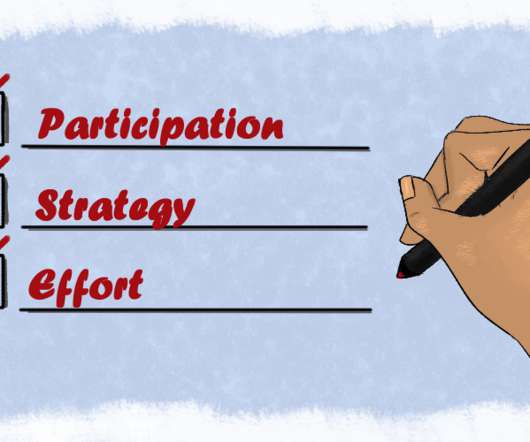Six Tips for Evaluating Your Nonprofit Training Session
Beth's Blog: How Nonprofits Can Use Social Media
FEBRUARY 18, 2014
I’m co-facilitating a session on Nonprofit Training Design and Delivery with colleagues John Kenyon, Andrea Berry, and Cindy Leonard at the NTEN Nonprofit Technology Conference on Friday March 14th at 10:30 am! Use Learning Theory. Has the workshop been effective in advancing the participant’s learning?













Let's personalize your content